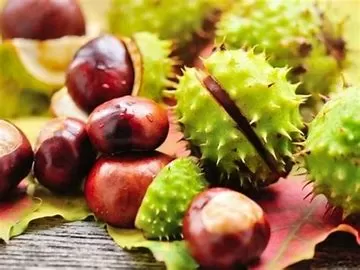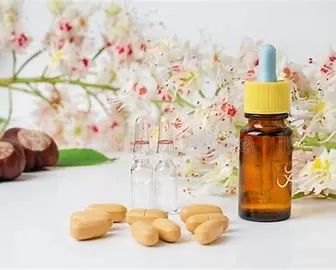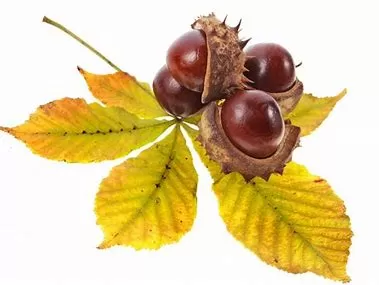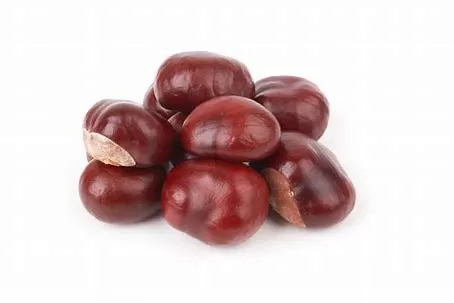- 0086-571-85302990
- sales@greenskybio.com
Is horse chestnut good for erectile dysfunction?
2025-05-28
Erectile dysfunction (ED) is a common condition affecting millions of men worldwide, characterized by the inability to achieve or maintain an erection suitable for sexual intercourse. The condition can result from various factors including psychological issues, hormonal imbalances, vascular problems, and lifestyle choices. As the pursuit of effective treatments continues, one lesser-discussed remedy is horse chestnut. Derived from the seeds of the Aesculus hippocastanum tree, horse chestnut has traditionally been used for a variety of vascular conditions. In this article, we explore whether horse chestnut could be beneficial in alleviating erectile dysfunction, examining both scientific evidence and traditional uses.
Understanding Horse Chestnut
Horse chestnut seed extract is rich in a number of active compounds, notably aescin, which is recognized for its venotonic properties. Aescin contributes to improving blood circulation and reducing inflammation, leading to horse chestnut’s common use in treating conditions such as chronic venous insufficiency (CVI), varicose veins, and hemorrhoids. By promoting better vasculature, horse chestnut theoretically holds promise in addressing erectile dysfunction.
Mechanism and Potential Benefits
To understand the potential application of horse chestnut in treating ED, it is vital to explore how erectile function works. Erections are primarily a vascular event, relying on proper blood flow to the penile tissues. When blood vessels are compromised due to conditions like atherosclerosis or poor circulation, erectile function can be significantly affected. Horse chestnut’s role in improving venous health may suggest a beneficial link to alleviating erectile dysfunction.
Vascular Health: Horse chestnut is known for enhancing blood circulation, a critical aspect required for erectile function. By potentially reducing inflammation and promoting vascular integrity, it may support improved blood flow to the penile tissues.
Anti-inflammatory Effects: Chronic inflammation can exacerbate vascular problems and contribute to ED. The anti-inflammatory properties of horse chestnut may help mitigate these issues, thus supporting better erectile function.
Antioxidant Properties: Oxidative stress has been linked to both vascular health deterioration and erectile dysfunction. Aescin, among other constituents in horse chestnut, offers antioxidant benefits that could protect vascular tissue from oxidative damage, potentially benefitting ED.
Scientific Evidence and Current Research
While horse chestnut is widely recognized for treating vascular disorders, research specifically investigating its effects on erectile dysfunction is limited. Most studies focus on its proven efficacy in managing venous conditions, which indirectly points to potential benefits for ED:
Chronic Venous Insufficiency Studies: Clinical trials have validated horse chestnut’s ability to relieve symptoms of CVI through improved blood circulation. Since good circulation is fundamental for erectile function, these findings lend some support to horse chestnut’s applicability in addressing ED.
Inflammation Reduction: Research attests to horse chestnut’s capability to reduce markers of inflammation in bodily tissues. Although direct studies on ED are scant, the connection between inflammation reduction and improved vascular health is well-documented.
Potential Synergistic Effects: Though specific studies are sparse, horse chestnut may complement other treatments for erectile dysfunction when combined with lifestyle changes or supplementary therapies that promote vascular health.
Considerations and Precautions
Despite the promising attributes of horse chestnut, several considerations should be taken into account regarding its use, particularly for erectile dysfunction:
Limited Direct Evidence: While vascular health improvements are noted, direct evidence relating horse chestnut to the resolution of ED is limited. Men seeking solely a remedy for erectile dysfunction may consider consulting healthcare providers about other more extensively studied treatments.
Dosage and Administration: Like any supplement, correct dosing is vital. Horse chestnut should be consumed in extract form with standardized levels of aescin for safety and efficacy. Untreated seeds can be toxic and should never be ingested.
Interactions and Side Effects: Horse chestnut may interact with certain medications, especially anticoagulants, due to its blood-thinning qualities. Possible side effects include dizziness, nausea, or digestive issues. Consulting with a healthcare provider before beginning supplementation is advised.
Underlying Medical Conditions: Those with existing medical conditions, particularly related to the liver or kidneys, should be cautious. Horse chestnut use in such instances should be guided by a medical professional to prevent complications.
Concluding Thoughts
While horse chestnut offers potential vascular benefits that could theoretically address erectile dysfunction, current available evidence supporting its direct use for ED remains limited. Its effectiveness for treating related vascular disorders suggests it might help indirectly, but more targeted studies are needed to validate its role specifically for erectile dysfunction.
Men experiencing erectile dysfunction should consider speaking with a healthcare provider to explore comprehensive treatments that address the underlying causes, including vascular health. When placed within a broader health regimen aimed at improving circulation, reducing inflammation, and supporting overall vascular health, supplements like horse chestnut could form part of an effective multi-faceted approach. Until further research substantiates its direct effectiveness for ED, horse chestnut should be used with careful consideration and professional guidance.
-
What are the benefits of taking Boswellia?
2025-05-28
-
Does horse chestnut raise blood sugar?
2025-05-28
-
Is horse chestnut FDA approved?
2025-05-28
-
Does horse chestnut affect blood pressure?
2025-05-28
-
Is horse chestnut extract safe?
2025-05-28
-
Is horse chestnut good for your legs?
2025-05-28














